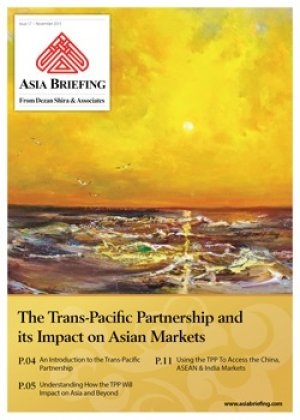Successfully Resolving Commercial Disputes: An Overview of Arbitration in ASEAN
 By: Marquise Clarke
By: Marquise Clarke
International arbitration centers have become the preferred location for the resolution of corporate disputes in ASEAN. The use of these centers is preferred due to their affordability, speed, privacy, and neutrality. As investors ramp up investment in ASEAN or enter the region for the first time, understanding where international arbitration is available and how to access it can provide significant protection from regulatory uncertainty.
In recent years there has been substantial economic growth and development among emerging markets within the ASEAN region. Within most jurisdictions, the increase in development, along with transnational transactions creates a high chance that commercial disputes will increase, in terms of both quantity and complexity. Any foreign investor thinking about investing in the ASEAN region should therefore carefully think about what options are open to them if commercial disputes do occur.
 RELATED: Pre Investment and Market Entry Advisory from Dezan Shira & Associates
RELATED: Pre Investment and Market Entry Advisory from Dezan Shira & Associates
Asia’s Leading Arbitration Centers: Hong Kong and Singapore
Of the many regional and international arbitration centers in Asia, the two internationally recognized powerhouses are the Hong Kong International Arbitration Center (HKIAC) and the Singapore International Arbitration Court (SIAC). These two hold the highest number of caseloads and reputability for the following reasons: flexibility in rules, timing of the procedure, global enforcement, emergency arbitration, high-quality global arbitrators, and non-involvement from the local courts.
Even though both the HKIAC and SIAC have distinguished ordered rules to govern their systems, both are open to using rules from other institutions on request. Second, the timing of the rendering of awards is usually between 12-18 months long. In addition, both Hong Kong and Singapore are signatories of the 1958 New York Convention on Recognition and Enforcement of Arbitral Awards, meaning arbitral awards from either jurisdiction are enforceable in 150 different countries (including all ASEAN countries). In any case, there is a need for an urgent decision, both centers have an emergency and expedited arbitration procedures where a decision can be made in ten days for Singapore and fifteen days for Hong Kong. The global recognition of high-quality arbitrators from around the world is key to ensuring neutrality and equitable treatment for foreign investors. SIAC has over 400 different arbitrators from 40 common and civil law jurisdictions, while Hong Kong has lists having 13 languages spoken, with the expertise of six areas of law in countries around the world. Finally, for both, there is minimal intervention.
ASEAN’s Importance
The ASEAN Economic Community (AEC) was created with one goal in mind: the creation of a single market. This was done with hope that it would lead to the acceleration of regional integrated priority sectors, movement of business personnel, and stronger institutional mechanisms. While this is a likely outcome of increased integration, the resulting increase in cross-border economic activity leaves a possibility of conflict and disputes. Even so, foreign investors may not necessarily want to have these disputes settled in national courts.
There are many benefits regarding the use of arbitration centers in the ASEAN region. In the case of the arbitration centers, there are considered to be neutral. If there are any cases which were settled in a court then there is a possibility of a country’s advantage over another foreign investor, making a high influx of unfair agreements. If parties do decide to settle commercial disputes in national courts, then there is a possibility the media will grab hold and exploit any undercover secrets they may have at the time. In arbitration centers, decisions are final and there is no way to undue the given decision unlike in a national court where there is always a possibility for appeals.
 RELATED: Rooting Out Slave Labor: An Introduction to Sustainable Manufacturing in ASEAN
RELATED: Rooting Out Slave Labor: An Introduction to Sustainable Manufacturing in ASEAN
Singapore Advantage
If foreign investors are interested in investing in the ASEAN region, it is advisable they look into handling commercial disputes with the SIAC instead of regional commercial arbitration centers like the Vietnam International Arbitration Center (VIAC) or Cambodia’s National Arbitration Center (NCAC). Not only is it the only international arbitration center which is internationally recognized, it is also considered the financial hub connecting the East and the West. Its unique proximity to South Asia, China and North Asia, and Southeast Asia makes it culturally and economically accessible to people from all over the world due to its distinctive history and multicultural demographics.
Legally, Singapore is open for international arbitration and allows counsel from all jurisdictions to freely participate in arbitral proceedings. Neutrality and removal of domestic court bias are strengthening factors for unique investor-state disputes. Also, SIAC nor Singapore impose restriction on foreign law firms conducting arbitration work. The influence of United Nation’s Commission on International Trade Law (UNCITRAL) Model Law on Singapore’s legislation allows for it to regularly incorporate internationally accepted practices.
Optimizing Investment with SIAC
As ASEAN begins to become a financial powerhouse for emerging markets, foreign investors must think critically about commercial disputes which may arise if they plan to pursue cross-border economic activity. The use of SIAC instead of regional centers is recommended due to the high complexity and quantity of cases that it has been able to handle since its inception.
In order for companies to excel at cross-border economic activity, there is a need to understand both the legal and non-legal options they have at their disposal regarding commercial disputes. By doing so, they are increasing their stability and potential for success of their future business within the region. To assist in fostering corporate stability in ASEAN, Dezan Shira & Associates provides legal, tax, and advisory services to foreign investors in throughout the region. Dezan Shira & Associates can advise companies on individualized options for actions which should be taken if at any point a commercial dispute does arise.
|
Asia Briefing Ltd. is a subsidiary of Dezan Shira & Associates. Dezan Shira is a specialist foreign direct investment practice, providing corporate establishment, business advisory, tax advisory and compliance, accounting, payroll, due diligence and financial review services to multinationals investing in China, Hong Kong, India, Vietnam, Singapore and the rest of ASEAN. For further information, please email asean@dezshira.com or visit www.dezshira.com. Stay up to date with the latest business and investment trends in Asia by subscribing to our complimentary update service featuring news, commentary and regulatory insight. |
Annual Audit and Compliance in ASEAN
For the first issue of our ASEAN Briefing Magazine, we look at the different audit and compliance regulations of five of the main economies in ASEAN. We firstly focus on the accounting standards, filing processes, and requirements for Indonesia, Malaysia, Thailand and the Philippines. We then provide similar information on Singapore, and offer a closer examination of the city-state’s generous audit exemptions for small-and-medium sized enterprises.
 The Trans-Pacific Partnership and its Impact on Asian Markets
The Trans-Pacific Partnership and its Impact on Asian Markets
The United States backed Trans-Pacific Partnership Agreement (TPP) includes six Asian economies – Australia, Brunei, Japan, Malaysia, Singapore and Vietnam, while Indonesia has expressed a keen willingness to join. However, the agreement’s potential impact will affect many others, not least of all China. In this issue of Asia Briefing magazine, we examine where the TPP agreement stands right now, look at the potential impact of the participating nations, as well as examine how it will affect Asian economies that have not been included.
 An Introduction to Tax Treaties Throughout Asia
An Introduction to Tax Treaties Throughout Asia
In this issue of Asia Briefing Magazine, we take a look at the various types of trade and tax treaties that exist between Asian nations. These include bilateral investment treaties, double tax treaties and free trade agreements – all of which directly affect businesses operating in Asia.









